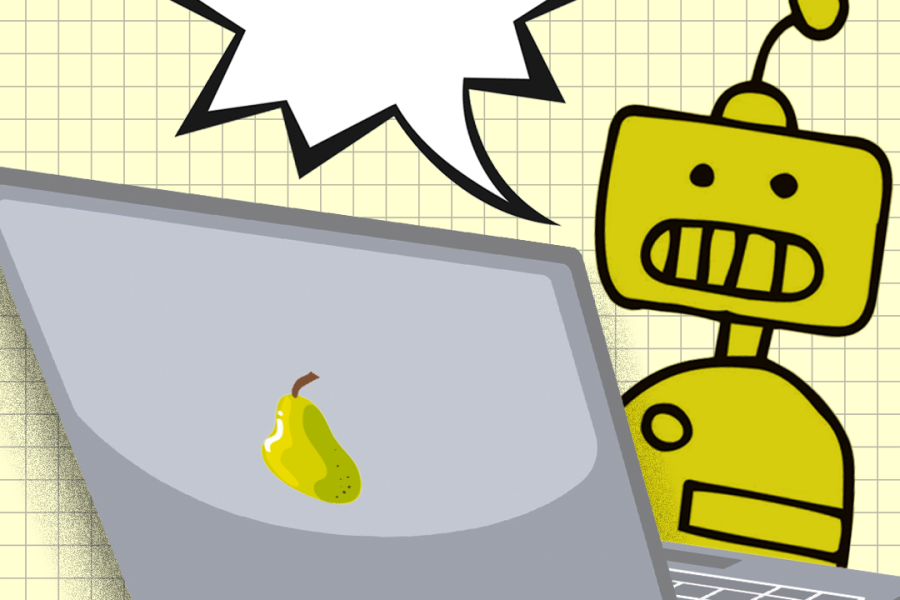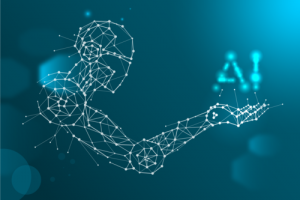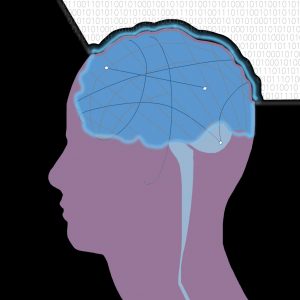ChatGPT: New York Times Bestseller?
The technology of ChatGPT is too limited and unfeeling to truly threaten the writing profession Ada Heller
March 3, 2023
I am not a robot. Yet. Even if I were, do you think you could tell? With growing technology and the rise of online artificial intelligence (AI) systems, it’s possible that you couldn’t.
If you’re a teacher, professor, student or casual social media user, you might recognize the name ChatGPT. ChatGPT is an AI system — an information machine capable of answering questions, summarizing documents and even writing articles. The system functions by sifting through data and generating conversation-like text. ChatGPT’s November 2022 launch sparked a flurry of debates and concerns across the internet about the future of education, writing and many more fields.
Students on social media watched in disbelief as the site spat out papers on “To Kill a Mockingbird,” proved e = mc^2 and explained the finer points of the Monroe Doctrine. Many of them were excited about the prospect of using this new technology to do their homework for them.
Anxieties about robots taking jobs is not new, but the latest concern is over robots taking white-collar jobs.
Other people across the internet seemed less sure about this new robot. Teachers and professors alike began to wonder how to enforce academic integrity in a world where you can now simply ask your computer to write a paper for you in seconds. The New York City Public Schools system banned the AI from school devices and networks a month after it was launched. Still, others voiced concerns over what this AI would mean for research and jobs in publishing and journalism.
The common feeling among all these groups of people is the fear of the unknown and of advancing technologies leaving the value of human skills in the history books. Anxieties about robots taking jobs is not new, but the latest concern is over robots taking white-collar jobs. Throughout the COVID-19 crisis, Americans have seen a steep increase in the use of automated machines in the workplace, from grocery stores to construction sites and warehouses. Robots already take inventory and clean floors in Walmart, lift heavy loads in Amazon warehouses, work check-out lanes in grocery stores, deliver food, disinfect hospital rooms and even patrol borders.
However, it’s not all bad news for the job market. According to National Geographic, the American workforce is shrinking, partly due to the COVID-19 pandemic but also due to an aging workforce and a recent cultural shift in the workplace that normalizes voluntarily leaving a disliked job. This shift is seen as educated employees are leaving certain jobs for employers that value their employees as human beings, instead of human capital. The jobs they’re leaving behind are often highly repetitive and physically demanding jobs that robots can easily fill.
ChatGPT will likely not replace writers. It will simply change how we write — perhaps even elevate our writing.
Enter ChatGPT. As an English student who dreams of writing professionally, the news of a website that could write articles in seconds was disheartening, depressing and shocking. For the first time, my career aspirations seemed endangered by the tech industry’s newest concoction. However, it took only a little research to determine that my professional dreams are safe from this wave of the robot revolution.
ChatGPT will likely not replace writers. It will simply change how we write — perhaps even elevate our writing. For me, ChatGPT will join the ranks of Grammarly and Google’s Smart Suggest: all helpful tools when writing, but never something that writes for me or something I wouldn’t double- or triple-check. Writers should accept technologies like ChatGPT because these AIs are the future of writing.
Upon further inspection, it is clear that ChatGPT is currently limited. It has no knowledge of any event post-2021 because the data set it operates from stops after September 2021. Ask it to write about George Washington’s presidency, and it will spit out a flawless description. But ask it about the latest Beyoncé album or the results of the U.S. 2022 midterm elections, and it shows its true colors: a system as flawed as us humans. My worries about it taking my job as a creative writer seem ill-founded too. When I asked it to write a poem about me, it almost plagiarized “Twinkle Twinkle Little Star” and rhymed “grand” with “grand”: “You are a star in the sky so bright / Shining with all your might … A true gem in this world so grand / You are a treasure, oh so grand.”
Personally, the poet in me remains unthreatened. ChatGPT remains incapable of completing novels, long and short stories or lengthy scripts. Even if it someday could, it would still be missing a key ingredient: the human experience. Using new technologies puts writers of all genres at an advantage, but no matter how fast technology progresses, only humans experience a full range of emotions and experiences. Therefore, solely humans are up to the task of expressing them.
My point? Calm down. Until I am eye-to-eye with a cyborg assassin, I am not going to let social media’s doomsday predictions scare me away from new and useful technologies. ChatGPT is not much different from the little robot you probably already carry around in your pocket all the time. It’s not going to write movie scripts, novels or whatever else you dream of writing. That talent is still ours.
For now, and for the foreseeable future, articles like this one were brought to you by humans — humans with less knowledge of grammatical structures or Einstein’s Mass-Energy Equivalence but humans with irreplaceable knowledge of experience. ChatGPT lacks knowledge of love, loss, sensation and most importantly, the knowledge of how to write about it in a way that only we humans can.













